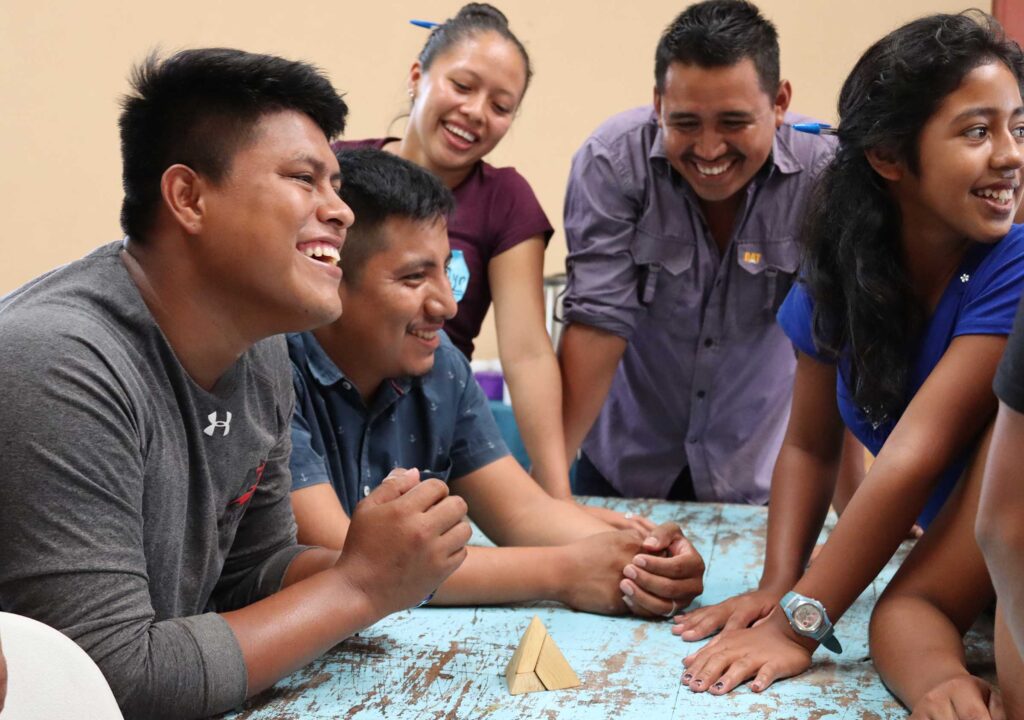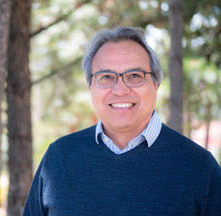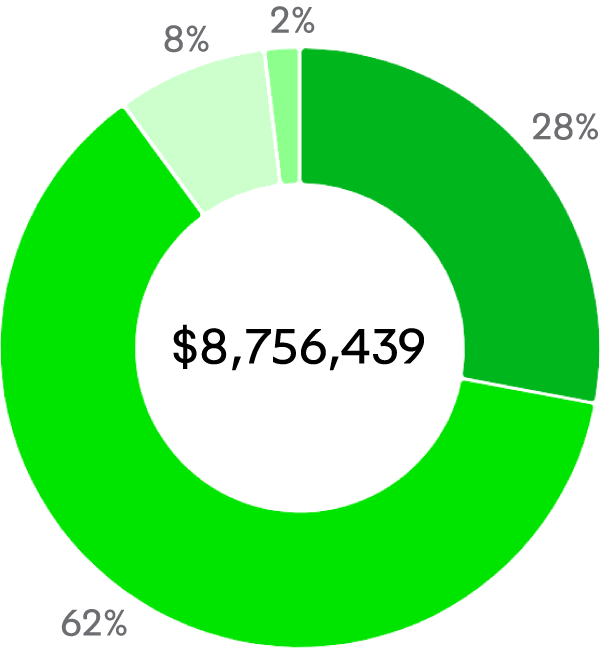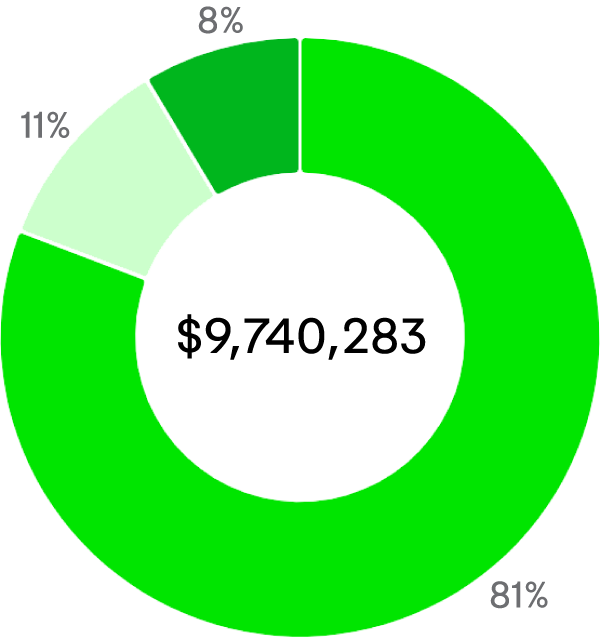Supported Indigenous Communities’ Land Titling Efforts across 10.9 Million Acres of Rainforest in the Amazon and Central America
Land titling is a complex process throughout Central and South America. It can require surveying and mapping vast and remote territories, obtaining and advocating for requisite government approvals and registrations, engaging with neighboring communities to clarify or negotiate boundaries, and enlisting legal representation. All of this can take many years, but it is always worth it in the end: Land titles are the most powerful tool an Indigenous community can have to defend their forests against illegal deforestation
Historic Land Rights Success in Peru
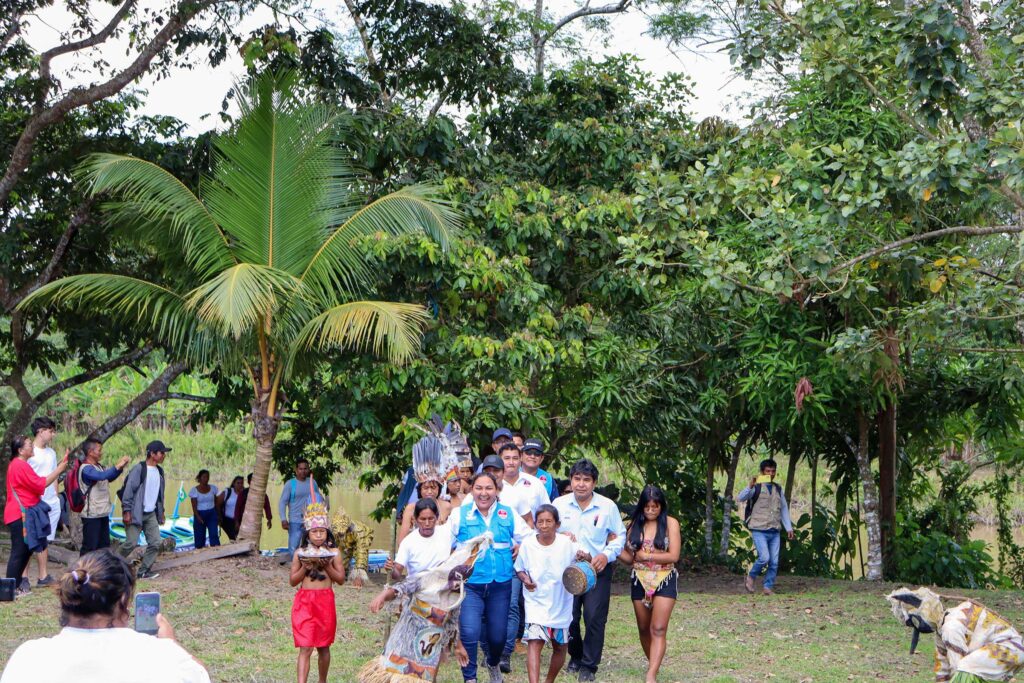
Through our partnership with a national federation of Indigenous peoples in the Peruvian Amazon (the Interethnic Association for the Development of the Peruvian Rainforest or AIDESEP), we helped secure a historic 17 land titles in Peru. Communities received title to their lands in record time due to this strategic partnership, which employed a new methodology that streamlined the titling process. As part of this process, AIDESEP entered into a four-year agreement with the regional government of Loreto, which has agreed to contract the necessary soil specialists, lawyers, and Geographic Information System (GIS) specialists to join Indigenous communities’ titling teams funded and equipped by RFUS. This collective approach not only sped up the process but also helped resolve internal disputes between communities and enabled them to present a united front in negotiations with the Peruvian government. Because of this grassroots approach, communities received these titles in 10 months, a process that normally takes years or even decades due to the complex and bureaucratic nature of the land titling process in Peru. It’s an inexpensive and scalable solution that AIDESEP and RFUS plan to implement throughout the region.
Land Titles Advanced For 6.6 Million Acres in Guyana
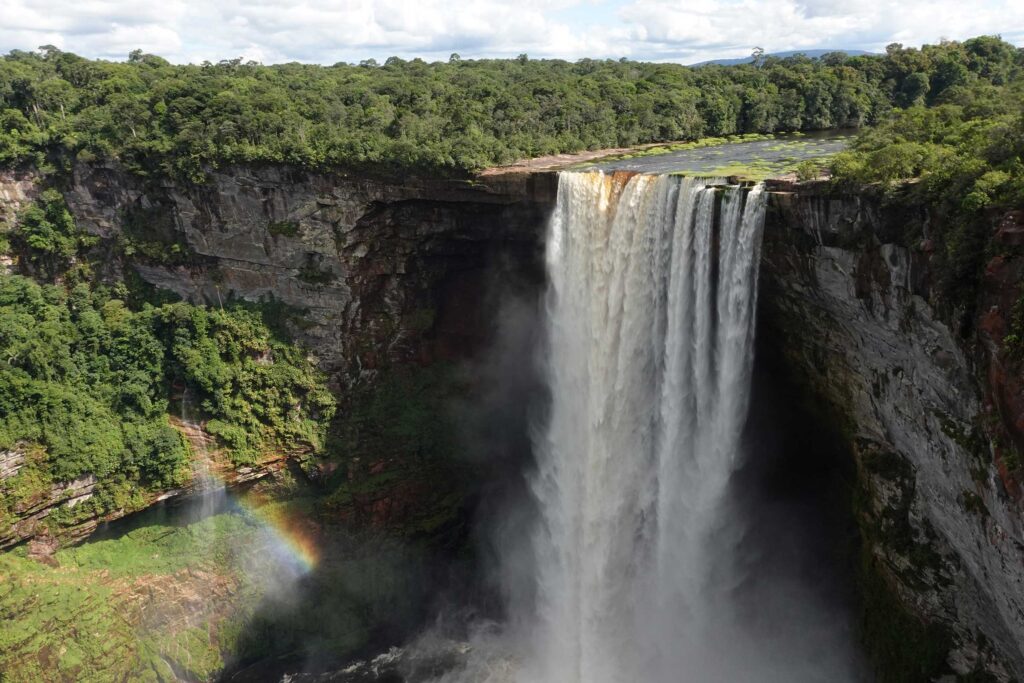
Throughout 2023, RFUS worked closely with Indigenous organizations in Guyana—one of the most densely forested countries in the Amazon—to advance conservation management plans for three critical ecosystems within Guyana. These areas are outside of currently titled Indigenous lands, and as such, they are particularly vulnerable to threats. These plans represent steps towards Indigenous peoples having increased control of these regions.
Together, we developed conservation management plans in partnership with district councils by documenting the traditional customary use of these areas, establishing visions, strategies, and rules around the use of resources, and supporting efforts to gain legal title for these lands. The management plans confer additional justification for 12 land title requests and advance protection of nearly 6.6 million acres of untitled traditional lands, an area close in size to the state of Massachusetts.




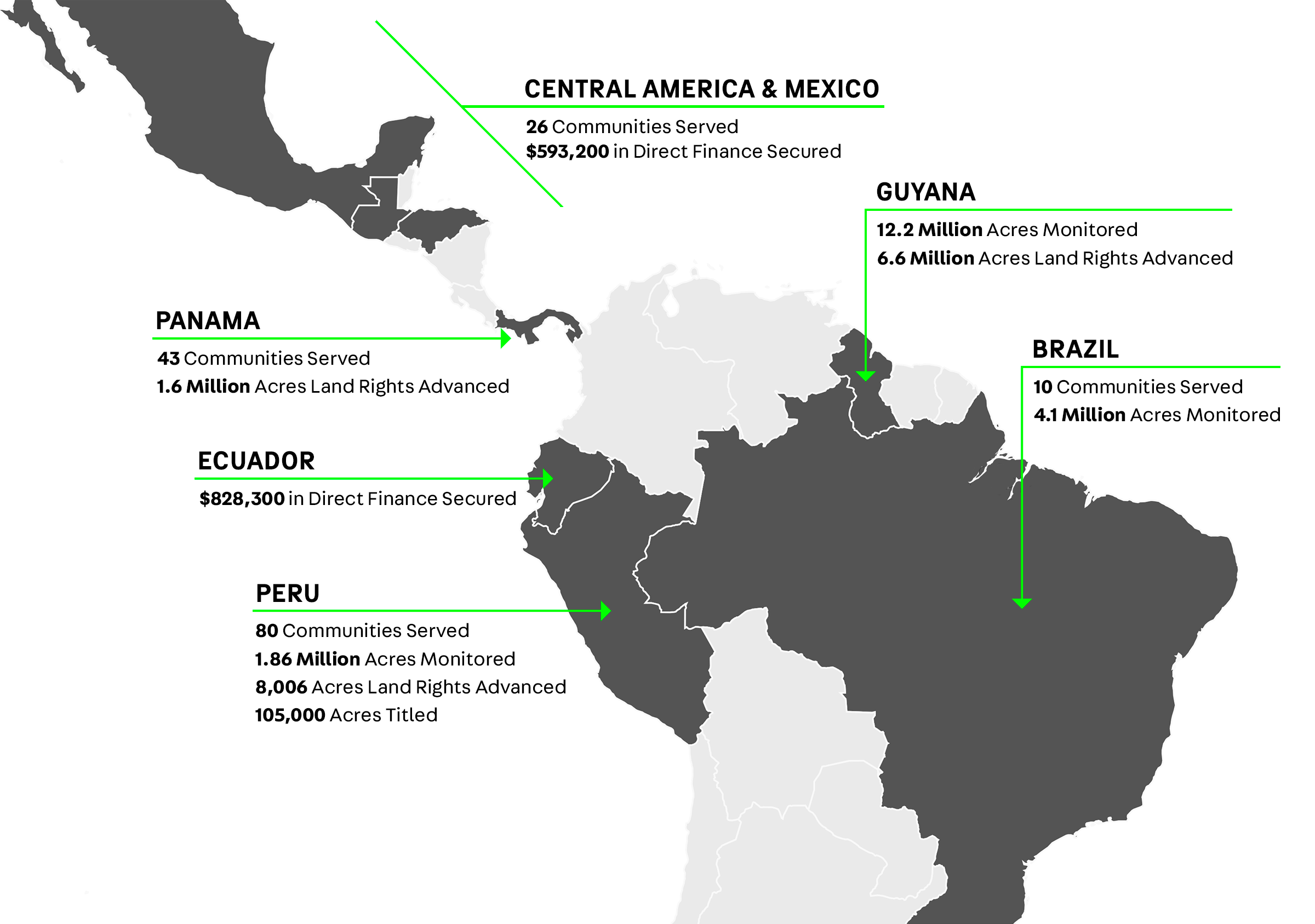
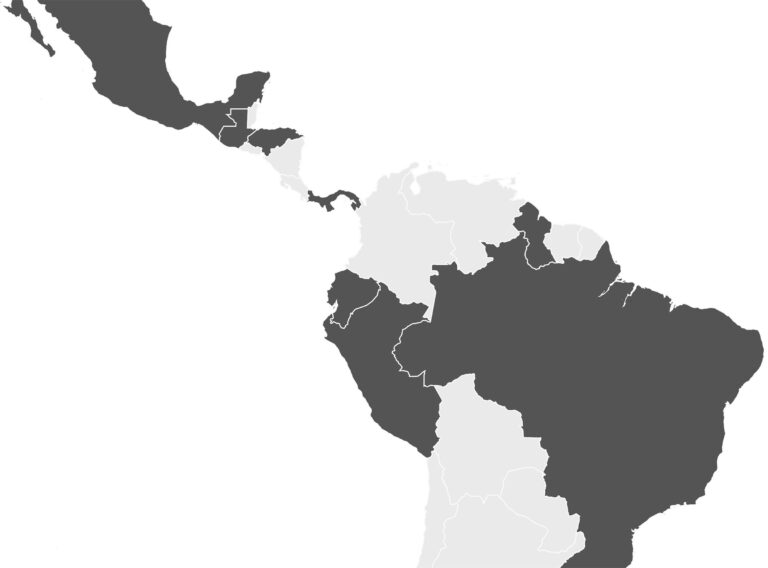
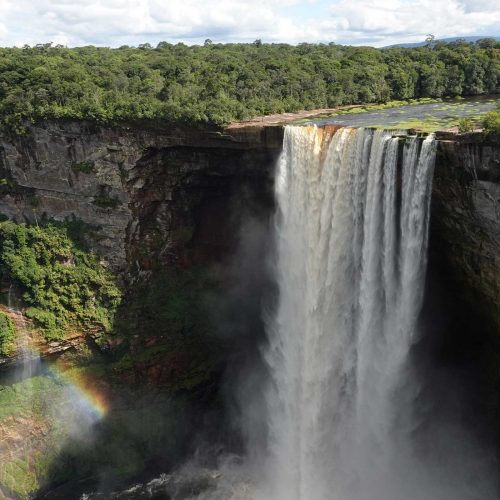
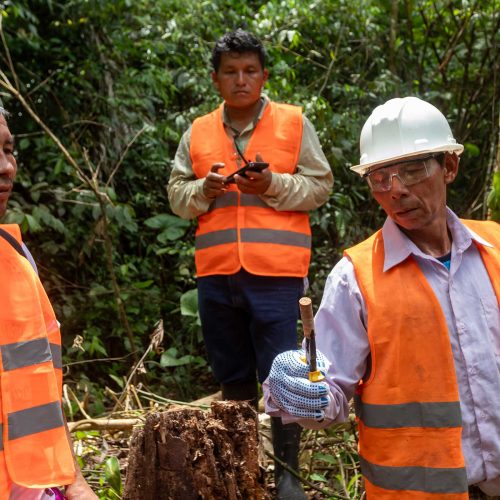
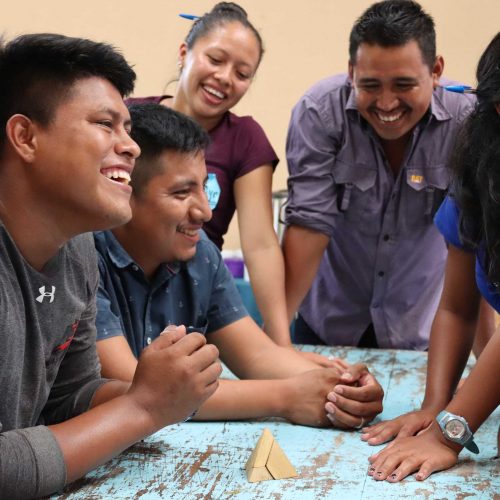
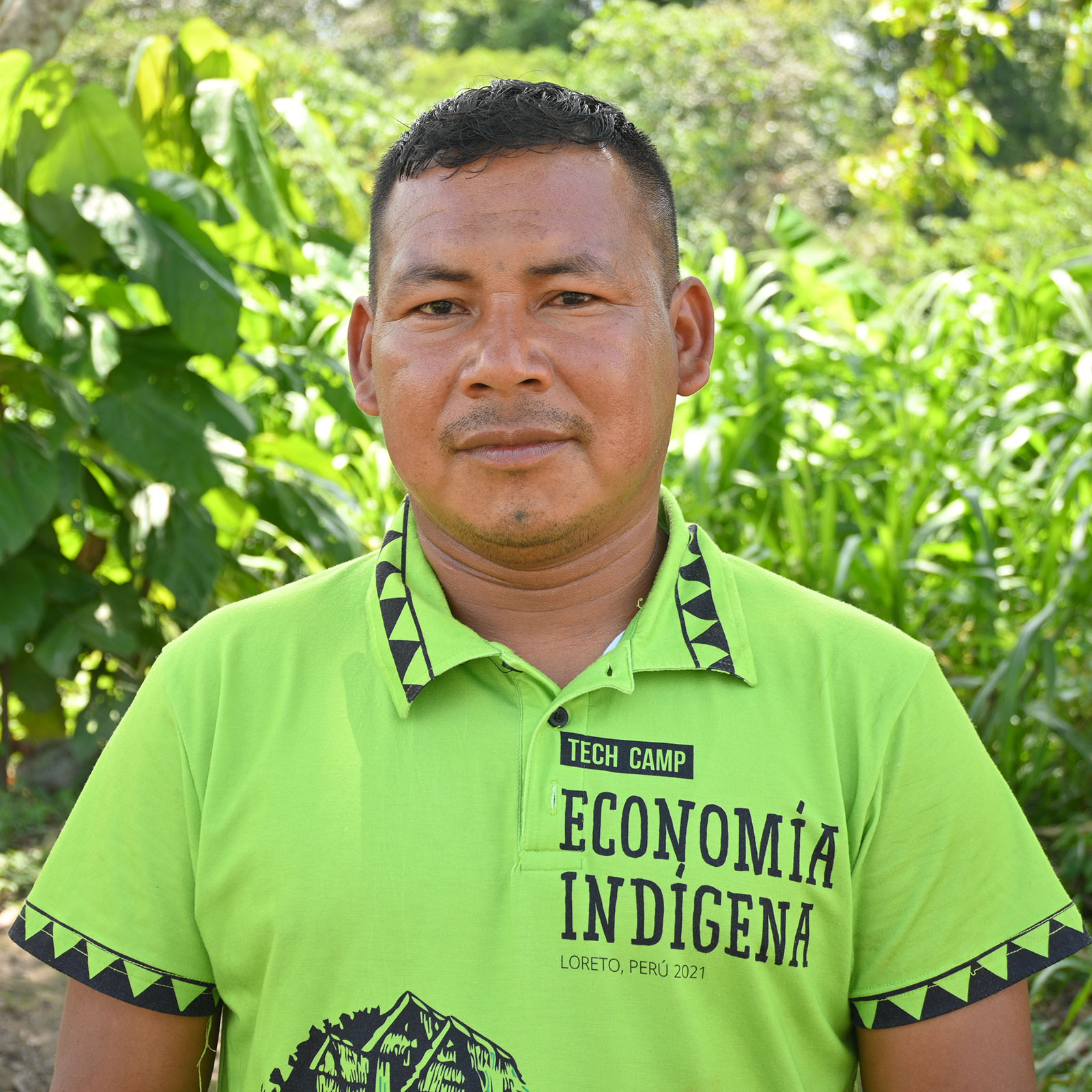
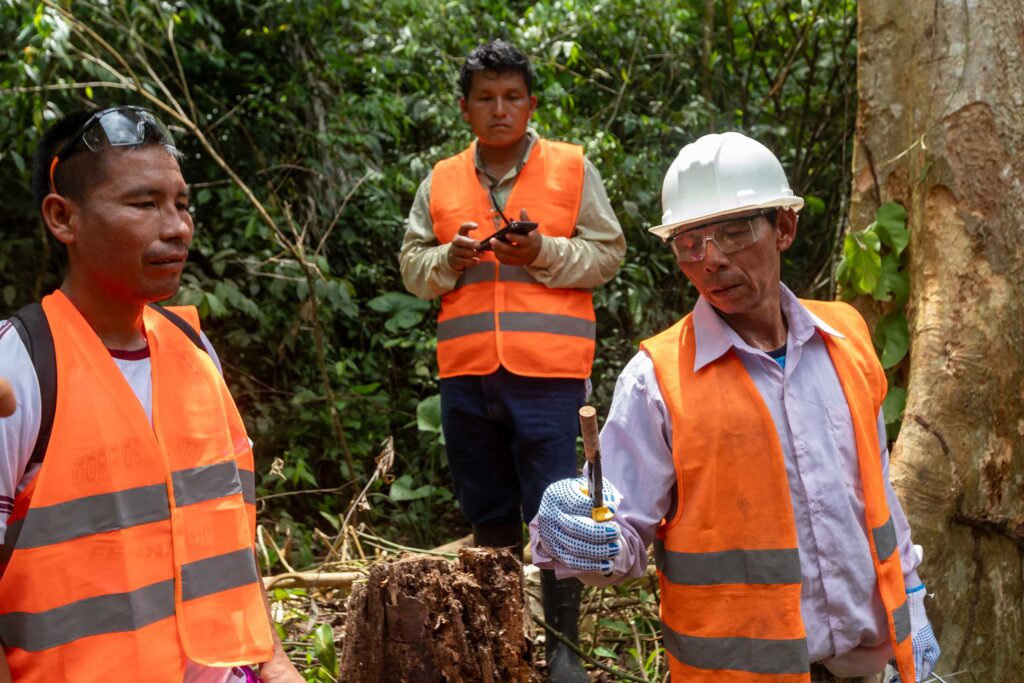
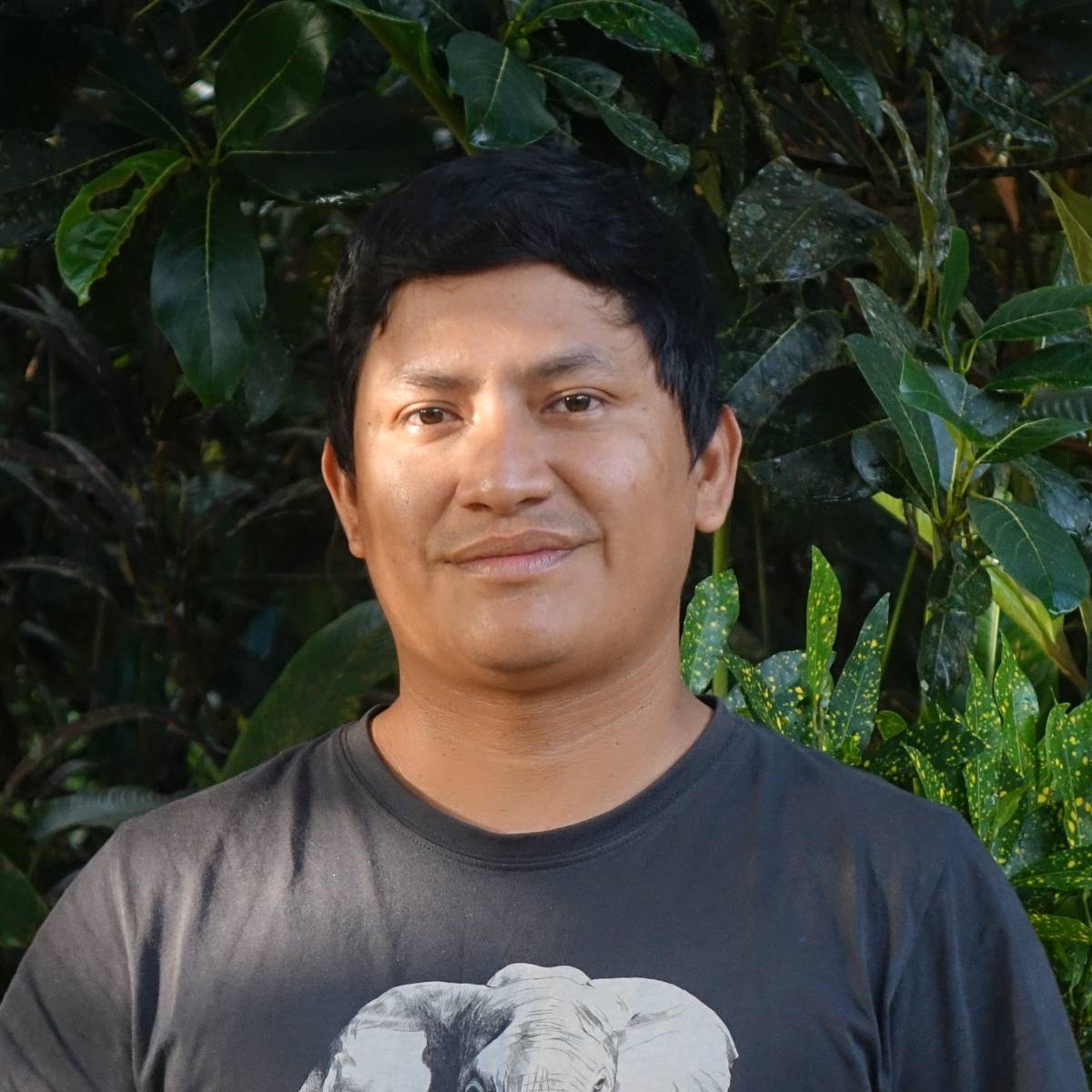
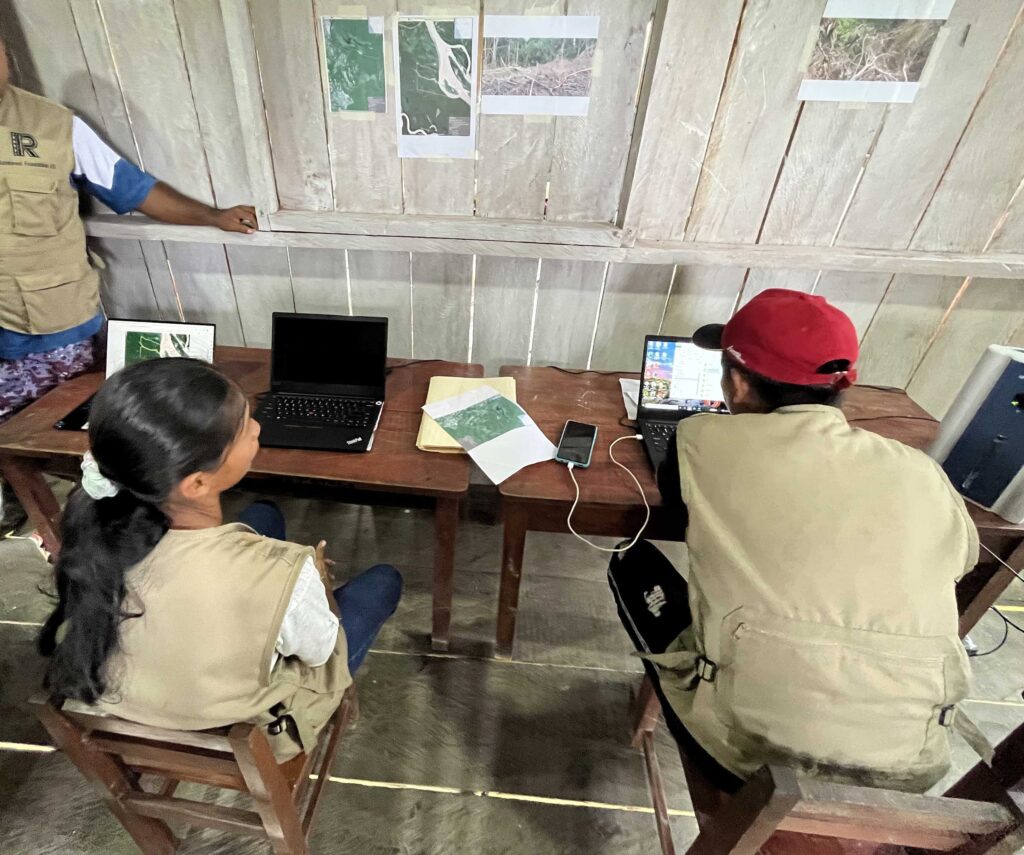
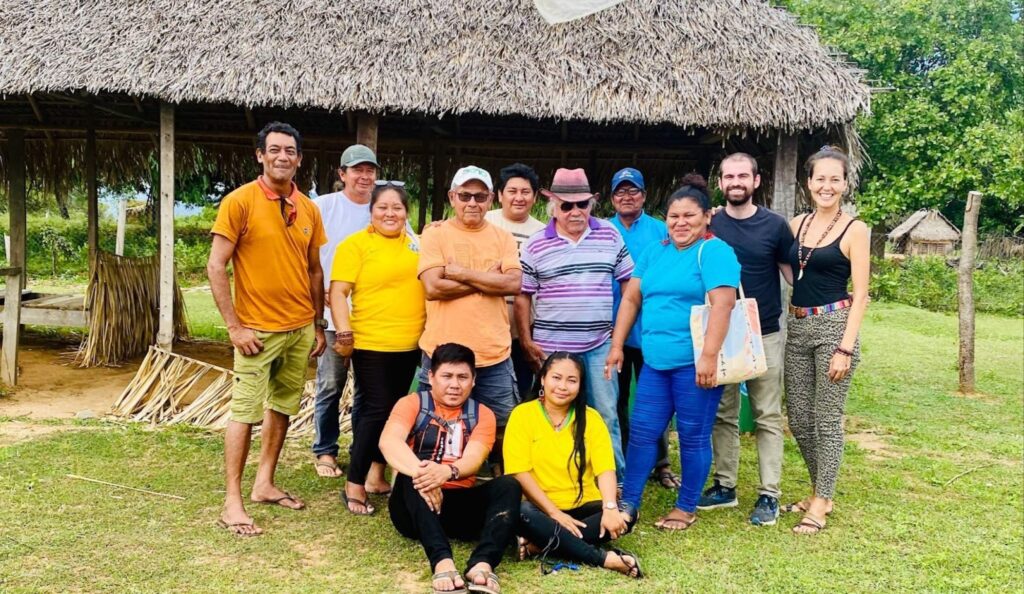 With strategic guidance and financial support from RFUS, our partners at the South Rupununi District Council in southwestern Guyana launched a pilot program to train a team of 10 community paralegals. These Indigenous paralegals—experts in the local context and culture—serve as grassroots legal advocates who understand and use the law to defend their rights.
With strategic guidance and financial support from RFUS, our partners at the South Rupununi District Council in southwestern Guyana launched a pilot program to train a team of 10 community paralegals. These Indigenous paralegals—experts in the local context and culture—serve as grassroots legal advocates who understand and use the law to defend their rights.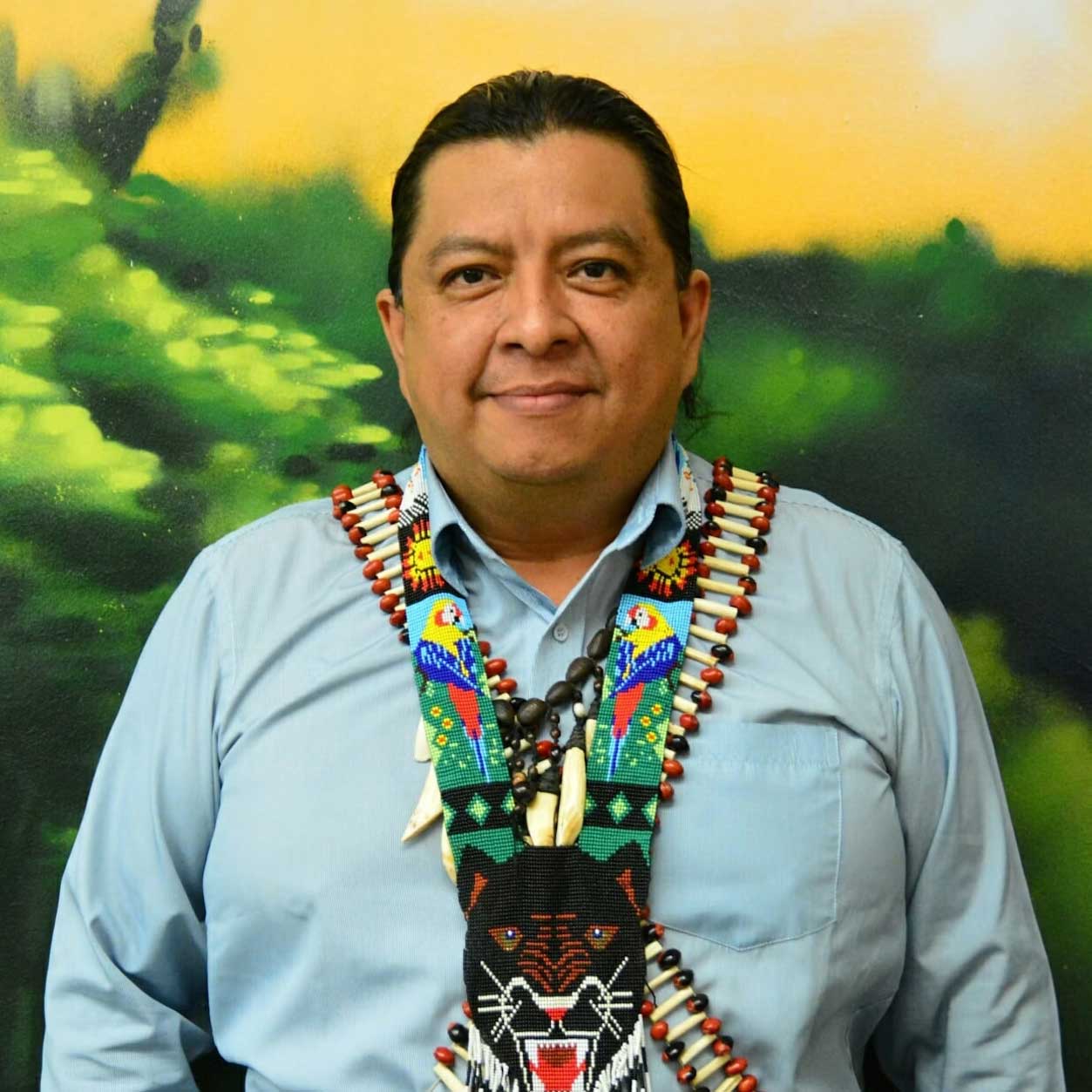
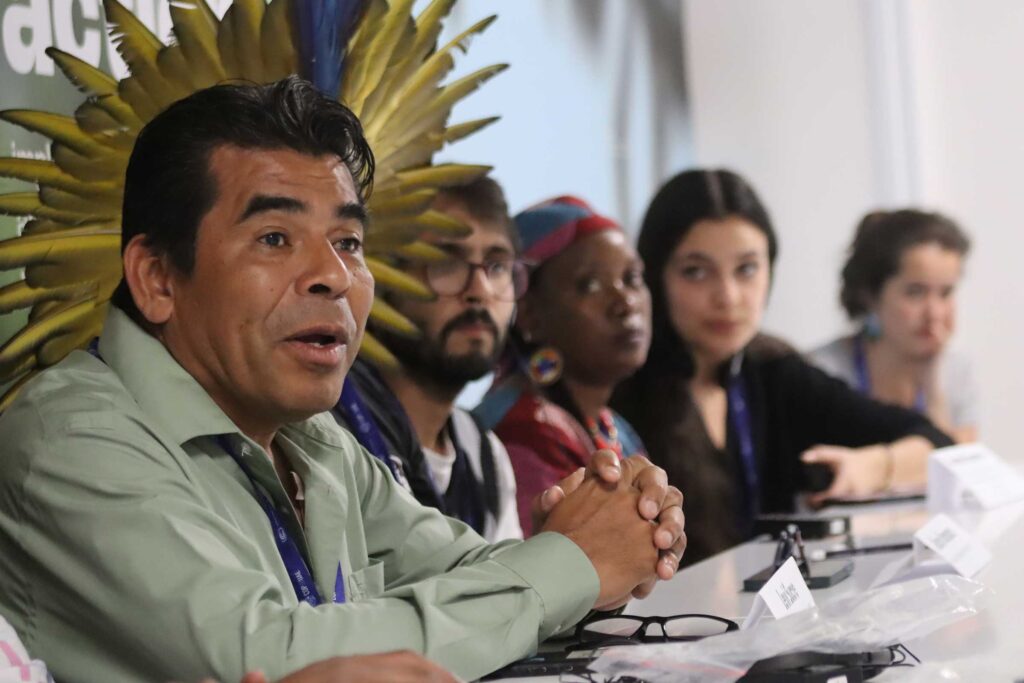 Historically, Indigenous organizations and communities have received less than 1% of climate-related funding, despite the fact that more than one-third of the world’s remaining pristine forests are on Indigenous peoples’ lands and deforestation is responsible
Historically, Indigenous organizations and communities have received less than 1% of climate-related funding, despite the fact that more than one-third of the world’s remaining pristine forests are on Indigenous peoples’ lands and deforestation is responsible 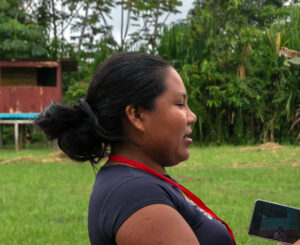
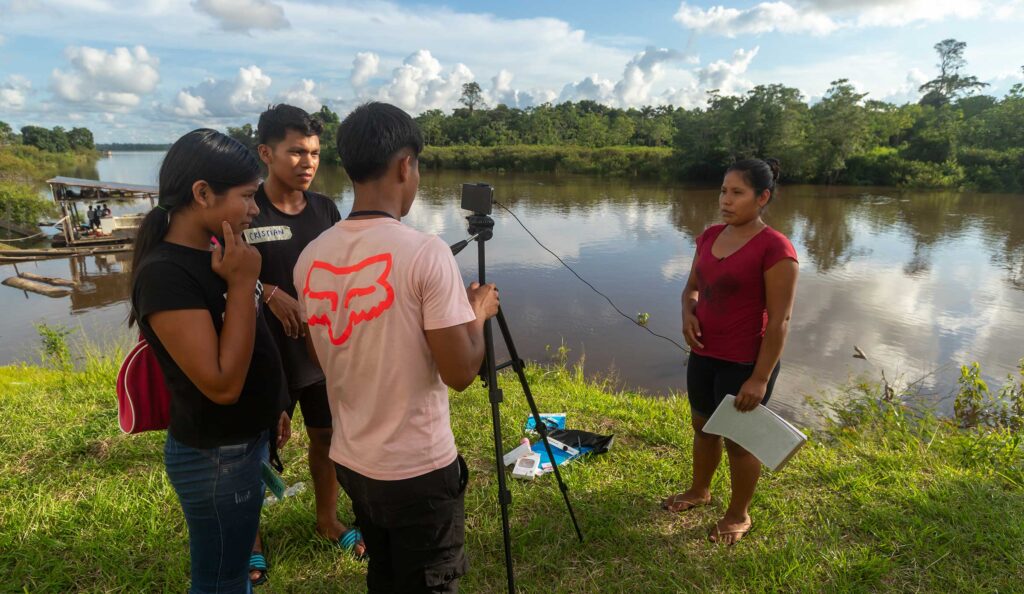 RFUS held a series of workshops in 12 remote Amazonian communities over the course of nine months in 2023 in coordination with ORPIO, audiovisual production company Sachacine, and four local Indigenous federations. These workshops, led by Indigenous trainers, highlighted Indigenous projects, issues, and solutions and fostered an interactive, egalitarian learning environment. This unique approach establishes a platform where tech firms and Indigenous communities collaborate as equals, each contributing to solutions for forest protection.
RFUS held a series of workshops in 12 remote Amazonian communities over the course of nine months in 2023 in coordination with ORPIO, audiovisual production company Sachacine, and four local Indigenous federations. These workshops, led by Indigenous trainers, highlighted Indigenous projects, issues, and solutions and fostered an interactive, egalitarian learning environment. This unique approach establishes a platform where tech firms and Indigenous communities collaborate as equals, each contributing to solutions for forest protection. 